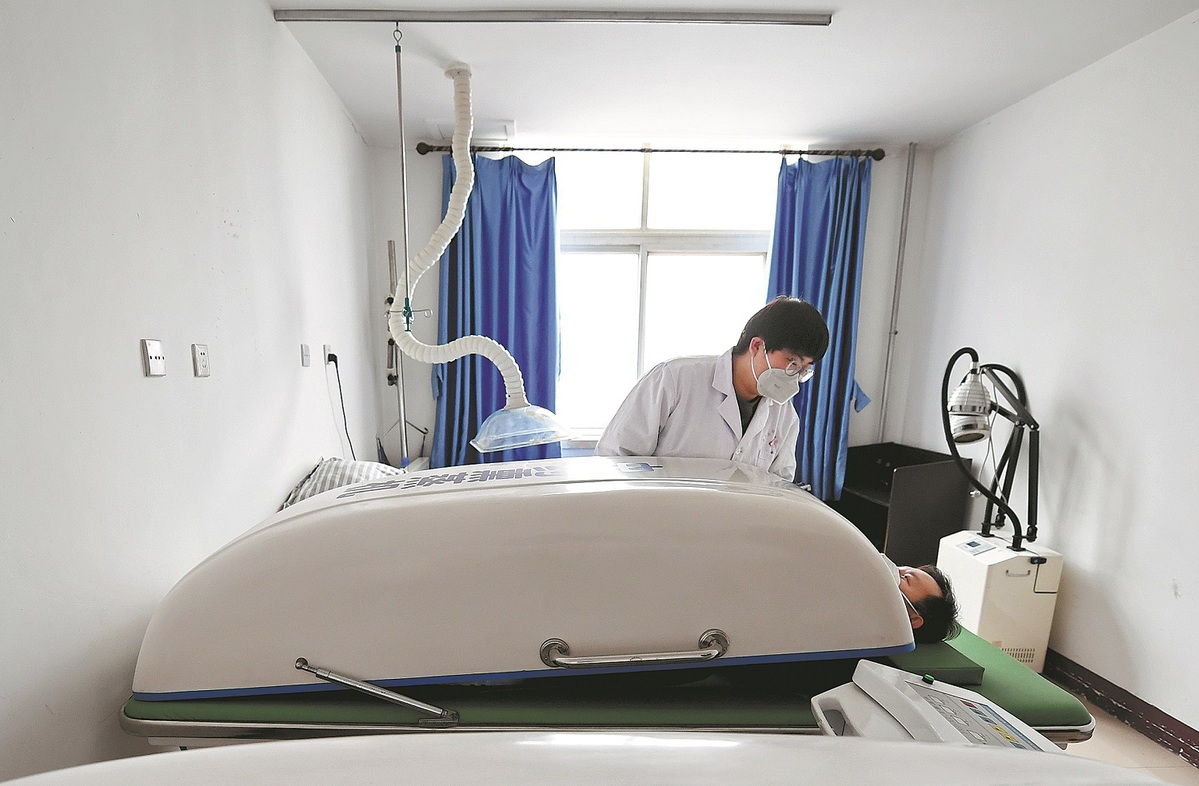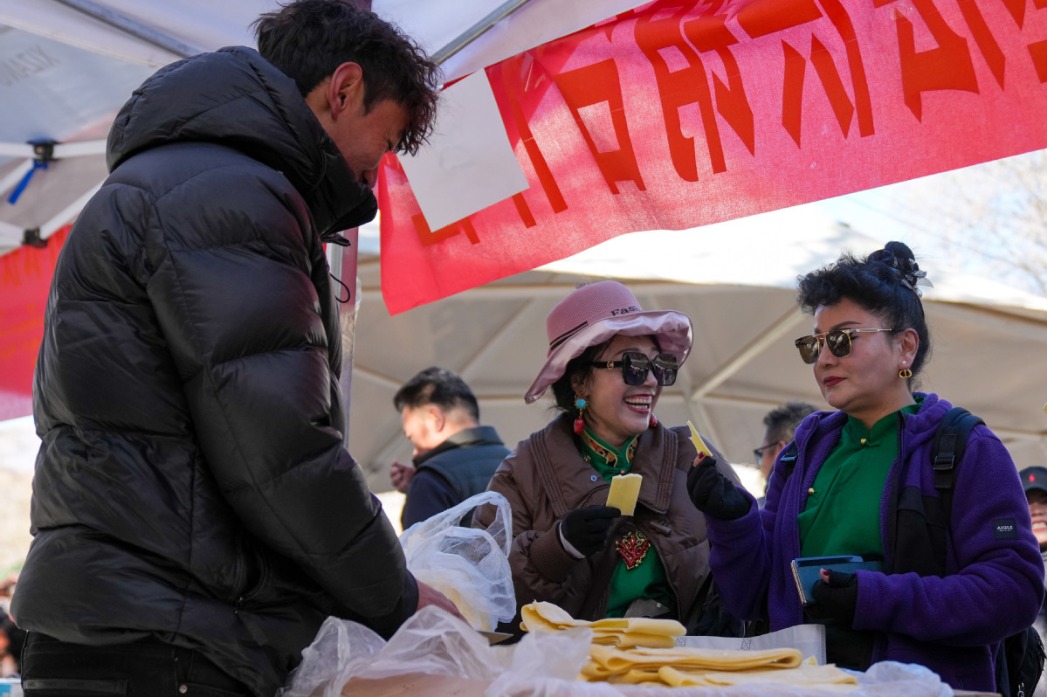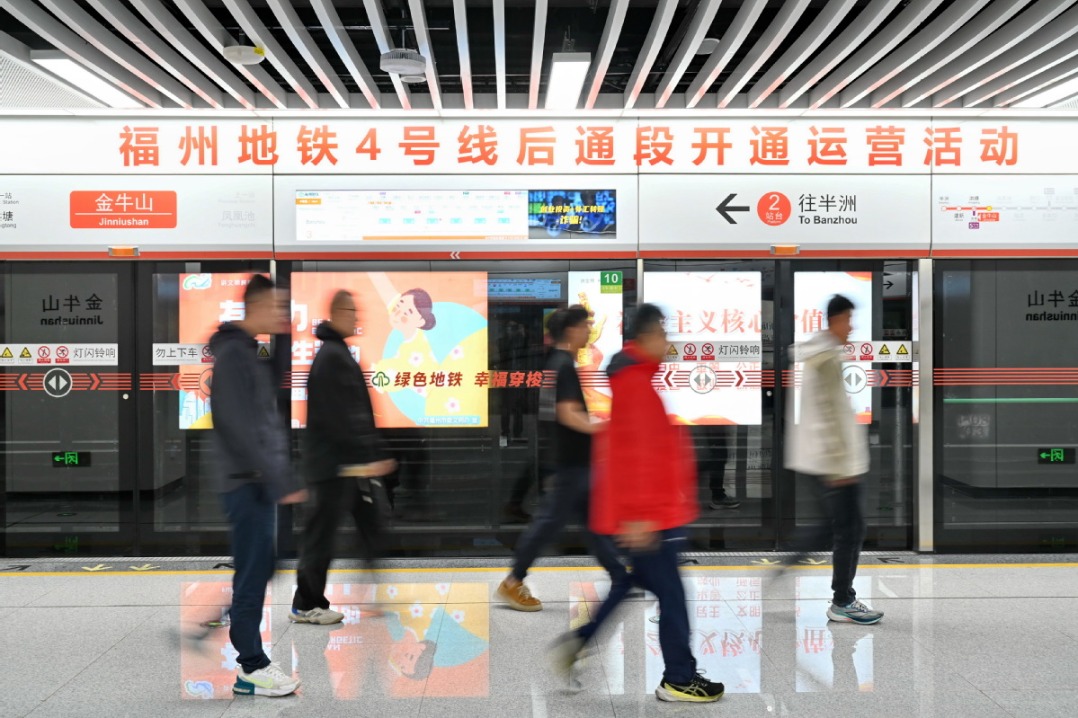COVID-19 has peaked among Chinese populace, figures show
Fewer patients seeking fever treatment while number in ICU begins leveling off


While the number of COVID-19 patients needing intensive care has "reached a plateau", the number seeking treatment at fever clinics is dropping nationally, both national and local data show.
Fever clinics on the mainland received 470,000 patients on Thursday, just one-sixth of the peak on Dec 23, according to the National Health Commission.
While speaking at a news conference on Saturday, Jiao Yahui, director of the commission's medical administration, said that the downturn applied not only to large cities but also rural areas, which authorities last month described as "vast, populous and thinly resourced".
Late last month, about one-third of visitors to fever clinics tested positive for COVID-19. That figure dropped to 10.8 percent by Thursday, she said.
Meanwhile, the number of hospitalizations fell from 1.62 million on Jan 5 to 1.27 million on Thursday, Jiao added.
Prior to the announcement, local authorities from Guangdong province to Chongqing reported that the strain facing fever clinics had eased significantly this month as infection peaks had passed.
Health authorities in the Guangxi Zhuang autonomous region, home to more than 50 million people, said daily visits to such clinics culminated at 118,537 on Dec 22 and dropped to about 10,000 across the region as of Jan 10.
The government of Zhongshan, Guangdong province, held a news conference on Wednesday, during which local officials assured the public that the city had "smoothly" reached its infection peak late last month, and daily appointments at its fever clinics had remained below 1,000 since Jan 3.
Its neighbor, Foshan, said its infection curve flattened last month and new cases were still declining. The number of patients that turned up at fever clinics was 2,110 on Jan 8, down from the peak of 30,000 on Dec 20.
The provincial capital Guangzhou said its hospitals were handling around 19,000 fever patients earlier this month, compared with about 60,000 on Dec 23.
A local newspaper in Shenzhen, a metropolis on the border with Hong Kong, reported on Jan 5 that community hospitals across the city received 1.54 million patients between Dec 11 and Jan 1, accounting for 65 percent of the city's total.
Over the period, daily visits to such facilities rose from 4,000 to more than 140,000 on Dec 21 before falling to around 30,000, it said.
Beijing received 12,000 fever patients on Jan 4, down from as many as 73,000 a day in mid-December. The number in Chongqing was 7,000 on Jan 3, much lower than the peak level last month, local media reported.
Fever clinics in Shanghai treated 29,300 patients on Jan 7, down about 65 percent from Dec 22, and those seeking emergency care and ambulance services started to decline this month.
However, the number of COVID-19 patients needing intensive care remained high in the city but had "reached a plateau", experts said.
In interviews with local media, experts said it takes longer for critically ill COVID-19 patients to peak.
That's because while most patients recover after a week of infection, conditions worsen for a small number of patients — usually older adults with preexisting illnesses — and necessitate hospitalizations or critical care.
Chen Erzhen, a member of Shanghai's expert panel treating critically ill COVID-19 patients, said it is difficult to estimate how long the peak of severely ill patients may last.
"Currently, the peak in infections is mainly predicted through models, and some errors may exist," he told ThePaper.cn, a news website headquartered in the city. "With the passage of time, the continuous implementation of various intervention measures and the continuous improvement of clinical treatment network, I believe it will gradually get better."
The stabilization of new COVID-19 infections and critical cases came as people contracted and recovered from their first novel coronavirus infections.
Zhang Wenhong, a senior epidemiologist based in Shanghai, has projected that the second wave of infections will peak somewhere between May and June, and symptoms will likely be milder.
lilei@chinadaily.com.cn




































